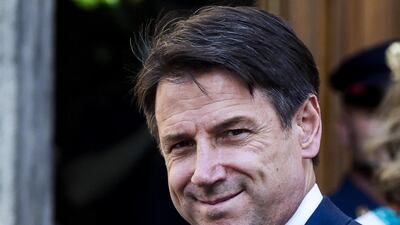Italy’s prime minister Giuseppe Conte has announced the formation of a new coalition government between the country’s populist Five Star Movement (M5S) and the centre left Democratic Party (PD).
The forging of the new coalition brings to an end a month-long political crisis in the country precipitated by far-right figurehead Matteo Salvini’s demand for fresh elections.
The leader of the right-wing League party, with a healthy lead in the opinion polls, detonated his own coalition with M5S with the expectation his move would provide a path to power through fresh elections.
The prospect of an alliance between the PD and M5S to thwart his plans had not entered into Mr Salvini’s calculations.
Standing at the Quirinal Palace in Rome on Wednesday Mr Conte told reporters that he and the new ministers would "dedicate our best energies, our abilities, our passion to making Italy better in the interest of all Italians".
Mr Conte, an independent politician with close ties to M5S, has spent the last six days bringing the populist movement together with the democrats at the request of the country’s president Sergio Mattarella.
The negotiations have had to overcome a number of obstacles including longstanding enmity between the two parties. It had been feared talks might be scuppered by an online poll amongst M5S members. The rank and file of the party ultimately endorsed the deal with their former enemy.
The Italian prime minister has also had to deal with the thorny issue of ministerial positions. One of the most closely watched appointments was that of interior minister, the position previously held by Mr Salvini, which has been given to career civil servant and independent Luciana Lamorgese.
Mr Salvini used the position to boost his popularity with his base, regularly clashing with other EU leaders over the migrant rescue boats he had blocked from entering Italian waters.
According to the Italian newspaper La Repubblica Ms Lamorgese's tenure is expected to usher in a marked change to the recent past with Italy cooperating with its EU partners on migration issues.
Mr Conte has also named PD deputy Roberto Gualtieri, who heads the European Parliament's commission on economy and finance, as Italian economy minister while the M5S leader Luigi Di Maio, who served as joint deputy prime minister in the previous government, has been named foreign minister.

